Almost half of the adult men and 24% of adult women snore each night during their sleep. Snoring can be light or unbearable. It can go unnoticed or can leave the silent partner sleepless. While dealing with a snoring partner is hard, nipping the cause in the bud is even more challenging. If you or your partner are one of the frequent snorers, learn how to block out snoring with this guide.
When snoring becomes loud enough to bother us at night, it disrupts our body’s melatonin production and increases cortisol, our stress hormone. As a result, we feel agitated and find it difficult to go back to sleep after being woken up. Regular disturbances to our sleep will eventually catch up with our health, impacting our mood, energy, and immune system. This is why it is important to learn how to block out snoring and other environmental factors that disrupt our sleep.
Block Out Snoring – Topics Discussed
- What Causes Snoring? »
- How to Block It Out? »
- How to Stop Someone from Snoring? »
- Frequently Asked Questions »
What Causes Snoring?
To block out snoring, we must first learn what causes it in the first place. The usual reasons for snoring are sleep apnea, allergies, your sleep position, late-night food or alcohol intake, or more generally, an unhealthy lifestyle. Besides, at night, the muscles in the roof of your mouth, tongue, and throat relax, blocking your airway and increasing tissue vibration.
1. Sleep Apnea
Snoring and sleep apnea go hand in hand. Sleep apnea is a sleep disorder that leads your breathing to stop and start during the night. There are a couple of types, but obstructive sleep apnea is the most common. It occurs when the muscles in your throat relax to the point of blocking out your airway and prevent normal breathing. It stops you from reaching deep, restful sleep and you feel deprived in the mornings.
2. Sleep Position
If no medical reasons are justifying the snoring, pay attention to your sleeping style. There are sleeping positions that cause snoring, usually sleeping on your back. It’s hard to stick to sleeping on your side during the night. Lying on your back causes the base of your tongue to collapse to the back wall of your throat. This causes vibrations when air gets ejected, resulting in a loud, rattling noise.
3. Allergies or Nasal Congestion
Snoring due to allergies is not excluded. Allergies, mainly seasonal, are hard to manage. The endless sneezing, itchy red eyes, and congested nose burden up to 30% of the population. At night, instead of restful sleep, you get a blocked nose and struggle to breathe. The allergens irritate your nasal passages, causing them to swell and limit airflow. You then resort to breathing through your mouth, irritating the soft tissues around the throat and inducing snoring.
4. Lifestyle Factors
Lifestyle directly impacts snoring. Just by losing some harmful habits, you might solve your snoring for good. For instance, eating vast amounts of food before bed raises your odds of snoring. Smoking, liquor, and drugs are also major triggers. They act as muscle relaxants leading to air passages collapsing, limiting airflow, and snoring. Weight is a big problem too. Overweight and unfit people might struggle with snoring because of excess fat around the neck and throat area.
How to Block Out Snoring?
A good night’s sleep is half your health. Irregular sleep, inability to reach deep sleep might lead to severe health problems. To keep being focused and rested, even with a snoring sleep partner, find out how to block out snoring.
1. Use a White Noise Machine
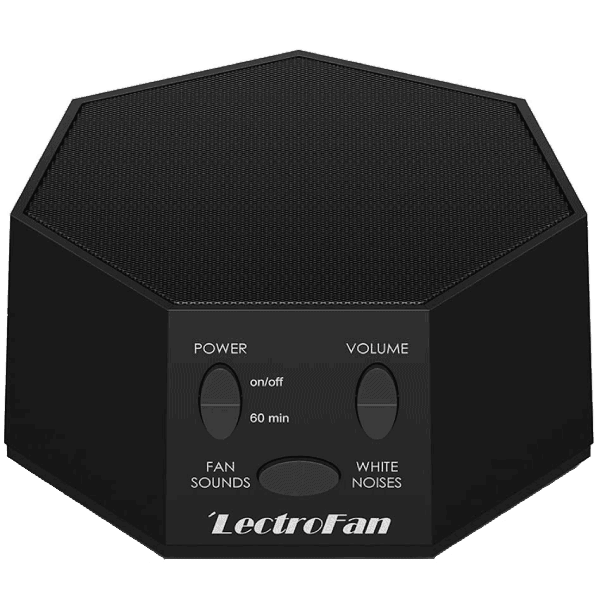
Fight fire with fire, or in our case, block out snoring with noise. A white noise machine is an innovative solution if you have problems with moderate snoring. It can drown or cover up mild snoring so that you won’t focus on the disturbing sound. Place the white noise machine on your side of the room so you’ll be physically closer to the sound.
It’s essential to buy a device that lets you control the volume. Snoring can range in volume, so you want a machine that can adapt to a varying sound. The most popular white noise machine that can help you mask snoring is LectroFan.
2. Wear Earplugs or Earbuds For Snoring
To block out light to moderate snoring, you can resort to earbuds for snoring. You’ve probably used earplugs at least once in your life. But earbuds are more technologically advanced , explicitly designed for sleeping and offer a robust noise-masking option.
Look for ones that comfortably fit in your ear and provide a good seal around the ear canal. The earbuds for snoring need to have a noise reduction rating of 33 to be effective. They rarely cause hot ears or irritation and feel the same way as earplugs. Most earbuds combine excellent performances and superb comfort.

3. Try Noise-Canceling Headphones for Snoring
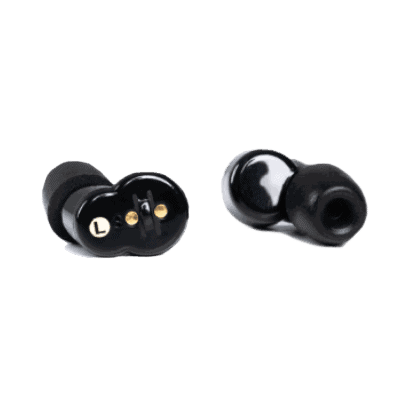
Noise-canceling headphones are the answer to many prayers. We have to thank them for keeping our sanity when dealing with a loud work environment or commute. But that’s all they can do. With the implementation of newer technologies, we now have noise-canceling headphones for snoring.
They’ve adapted to cancel out any noise from ambient to loud and save you from snoring partners. When dealing with moderate to loud snoring the big guns need to be pulled. If you can hear snoring over a white noise machine and an earplug, then this is your best bet.
How to Stop Someone from Snoring?
You can do everything to block out snoring on your end, but sometimes it’s the snorer that needs help the most. Here are a few tips and suggestions on how you can help someone improve their snoring and overall breathing.
4. Wedge Pillow for Snoring
Convincing someone to switch their sleep position is hard, but getting them a wedge pillow is a good alternative. When laying on your back, the tongue falls backward, blocking out the airways and leading to snoring. Poping up a regular pillow underneath won’t solve the problem; it could even make it worse.
A wedge pillow for snoring keeps the upper body at a 45 angle, provides support to your neck and shoulders, keeps your head in a position where the airways can stay open and eliminates snoring. It’s not one size fits all, so check for pillows with a free trial and put them to the test.
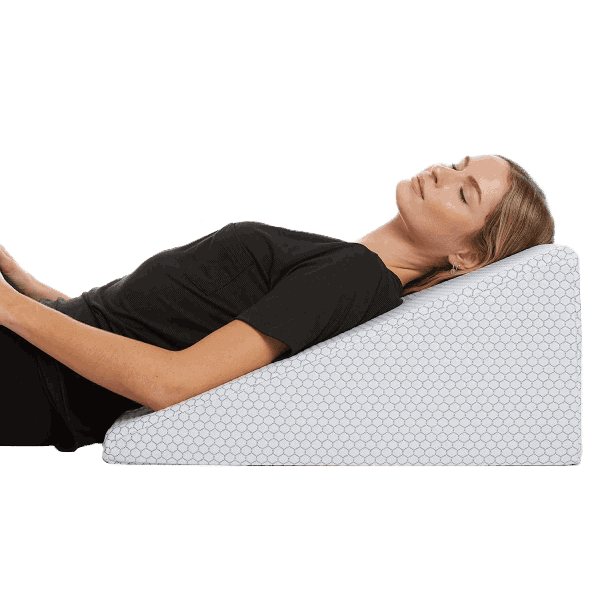
5. Snoring Mouth Guard
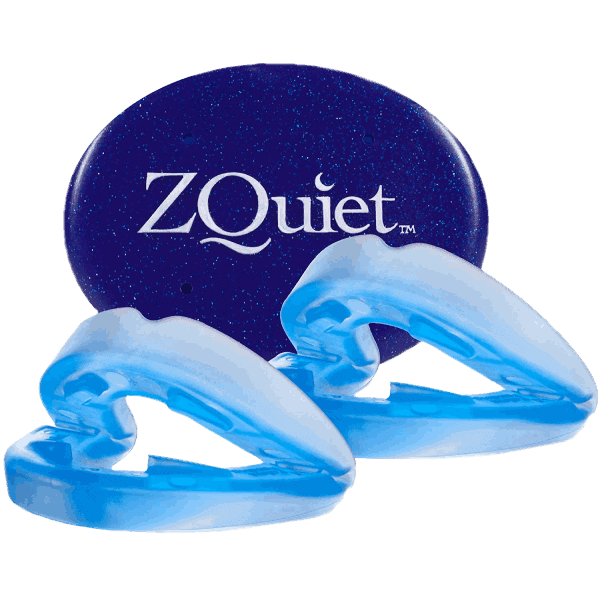
Sleep apnea and snoring happen due to blocked passages in the throat and nasal area, so an oral device seems sensible. Since 2006 snoring mouth guards are available over-the-counter for those dealing with mild sleep apnea.
Using a snoring mouth guard is far less trouble than a CPAP machine. They work by gently keeping the jaw and tongue in position while you sleep, keeping the airways open. It would be ideal if you can convince them to get a custom-fitted snoring mouth guard. Those are far more pleasant and efficient.
6. Nasal Strips for Snoring
The nasal strips for snoring are a type of sturdier bandaids placed over the nose’s bridge every night to help keep the nasal ways open. They work as dilators, pulling the nostrils up and keeping them wide to ensure uninterrupted breathing through the nose. The nasal strips for snoring are convenient and easy to suggest to the person snoring. They’re simple to use, can’t cause complications, and help with mild snoring.
One of the best points is they’re cheap, and you can get them anywhere. But beware that with prolonged use, they can cause a skin reaction due to the adhesives.
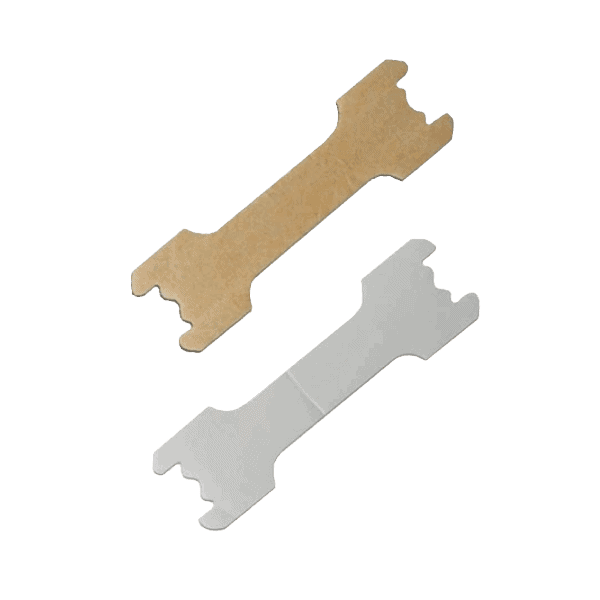
7. Change Their Sleeping Position
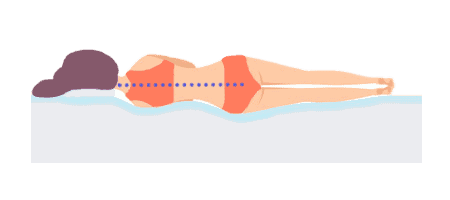
It’s tough to change a preferred sleeping position. Even if you position yourself the right way, you are not aware of the tossing and turning you do when you drift off. The back is the worst position, while the side is the best sleeping position to avoid snoring.
To help someone change their sleeping posture, you can suggest a body pillow or a tennis ball sewn to the back of their pajama. Any object placed on the back of their sleeping clothes that makes resting on the back uncomfortable is welcome. Switching a sleep position is often changing a decade’s habit and can take some time.
FAQ: Blocking Out Snoring
Is Snoring a Sign of Poor Health?
It’s normal to snore once in a while. If you had a long exhausting day, have the flu, seasonal allergies, or a congested nose, it’s normal to snore. But chronic snoring is connected to a poor lifestyle or health issue. It can be a sign of sleep apnea or physical changes to the mouth and throat.
What Causes Snoring in Females?
Statistically, women snore less than men. Women make up ⅓ of the snorers over the age of 30. The main reason fewer women snore lies in progesterone and estrogen that seems to protect against upper airway collapse. Progesterone also helps dilate the muscles in the upper airways. But what makes women snore is no different than men. Sleep apnea is not gendered.
Does Snoring Mean Apnea?
Don’t get scared; not every snoring is sleep apnea. The list of snoring triggers is rather long. Anything can cause snoring, from alcohol, smoking, weight gain to sleep position, and more. If other sleep apnea symptoms follow the snoring as interrupted breathing during sleep and excessive tiredness, the person must consult their physician. The physician may order a sleep study to test for sleep apnea.